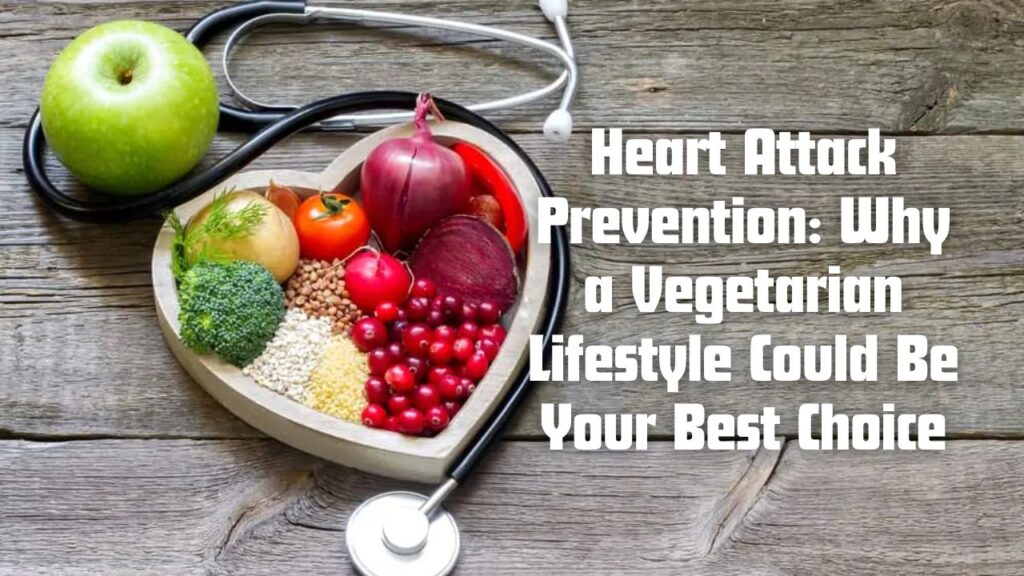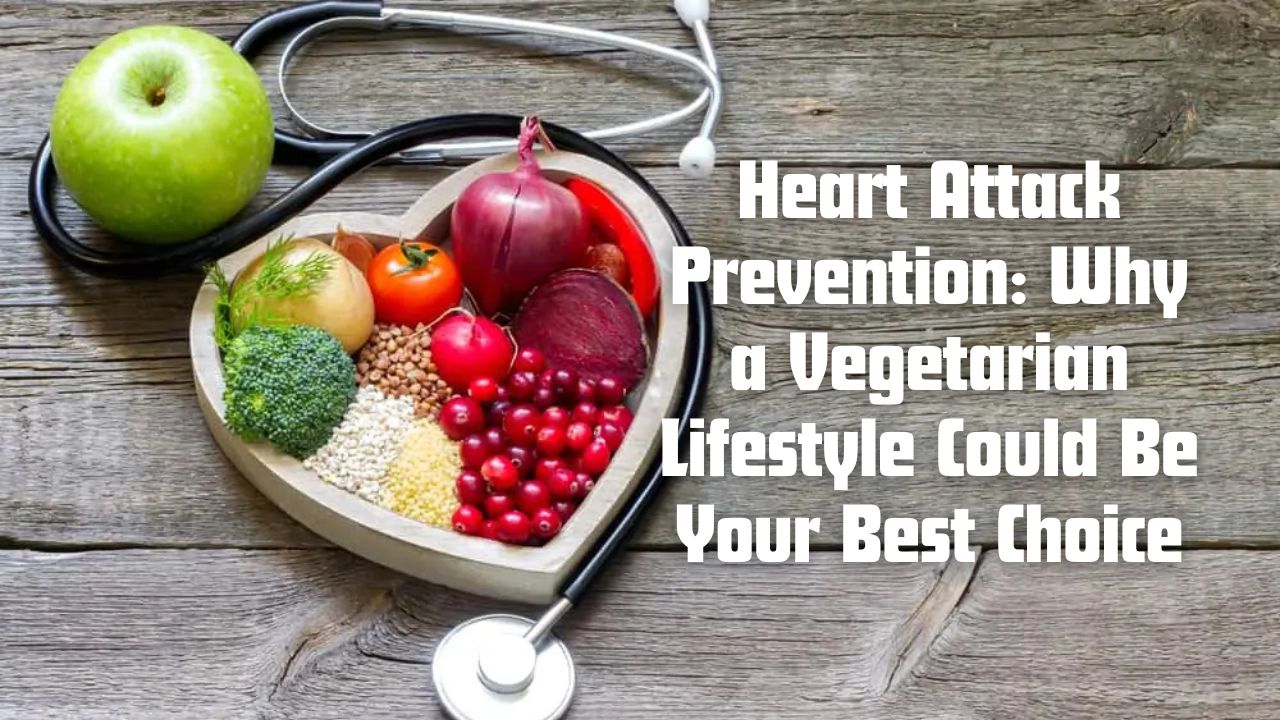Heart Attack Prevention: Why a Vegetarian Lifestyle Could Be Your Best Choice
Heart attacks are one of the leading causes of death worldwide. Many people suffer from heart disease due to unhealthy eating habits, lack of exercise, and high stress levels.
One way to prevent heart disease is by adopting a vegetarian lifestyle. Eating more fruits, vegetables, whole grains, and nuts can help reduce the risk of heart problems. This article will explain why a vegetarian diet can be the best choice for heart health and how it can also help in other areas of life, such as home expenses, finance, and legal matters.
What Is a Heart Attack?
A heart attack happens when the flow of blood to the heart is blocked. This usually occurs due to a buildup of fat, cholesterol, and other substances in the arteries. If the blood flow is blocked, the heart cannot get enough oxygen, which can cause serious damage or even death.
The main causes of heart attacks include:
- High blood pressure
- High cholesterol levels
- Obesity
- Smoking
- Unhealthy diet
- Lack of exercise
Many people spend a lot of money on hospital bills, health insurance, and medications after a heart attack. Preventing heart disease with a vegetarian diet can help you avoid these medical expenses and keep your finance in good shape.
How a Vegetarian Diet Can Prevent Heart Attacks
A vegetarian diet is rich in fiber, vitamins, and antioxidants, which help keep the heart healthy. Unlike a diet that includes meat, a vegetarian diet has less saturated fat and cholesterol, which are the main causes of blocked arteries.
Benefits of a Vegetarian Diet for Heart Health:
- Lowers cholesterol levels: Plant-based foods do not contain bad cholesterol (LDL), which reduces the risk of blockages in the arteries.
- Reduces blood pressure: Eating fruits and vegetables helps maintain normal blood pressure levels.
- Prevents obesity: A vegetarian diet is lower in calories and helps with weight management.
- Decreases inflammation: Plant-based foods have anti-inflammatory properties, which protect the heart.
By preventing heart disease, you can save money on medical bills, avoid expensive medications, and reduce health insurance costs. This helps in managing your finance and legal health-related expenses.
Vegetarian Diet vs. Meat-Based Diet
Many people believe that eating meat is necessary for protein and strength, but studies show that a vegetarian diet can provide all the essential nutrients needed for a healthy body.
Comparing the Two Diets:
| Vegetarian Diet | Meat-Based Diet |
|---|---|
| High in fiber (helps digestion) | Low in fiber (can cause constipation) |
| Lowers cholesterol | Raises cholesterol |
| Rich in vitamins and minerals | Lacks essential vitamins |
| Prevents obesity | May cause weight gain |
By choosing a vegetarian lifestyle, you can reduce your chances of getting a heart attack and other serious diseases. Also, avoiding meat can help you save money on groceries and cut down on medical expenses.
How a Vegetarian Diet Helps Save Money on Health and Finance
Health problems caused by bad eating habits can be expensive. A heart attack can result in huge medical bills, insurance costs, and even legal issues related to healthcare. By eating a plant-based diet, you can reduce your medical expenses and avoid financial stress.
Financial Benefits of a Vegetarian Diet:
- Lower grocery bills: Vegetables, fruits, and grains are cheaper than meat.
- Less spending on healthcare: Fewer medical visits mean lower health insurance premiums.
- Reduced life insurance costs: Healthy individuals pay lower insurance rates.
- Lower prescription costs: A vegetarian diet reduces the need for expensive medications.
Maintaining good health not only helps you live longer but also keeps your finance and legal costs under control.

Impact of a Vegetarian Diet on Home and Lifestyle
Switching to a vegetarian diet can also improve your home environment and lifestyle. Many people experience a better quality of life when they eat nutritious foods and stay active.
Benefits for Home and Family:
- Improves family health: A vegetarian diet is suitable for all ages.
- Reduces kitchen expenses: Meat is expensive, while vegetables and grains are more affordable.
- Eco-friendly home: A plant-based diet reduces carbon footprint and pollution.
- Better mental health: Eating healthy foods improves mood and brain function.
By adopting a vegetarian lifestyle, you can create a healthy home while also saving money on food and medical expenses.
Legal and Ethical Benefits of a Vegetarian Lifestyle
Choosing a vegetarian diet also has legal and ethical advantages. Many people switch to plant-based eating for ethical reasons, environmental protection, and legal concerns.
Legal and Ethical Benefits:
- Animal rights: Avoiding meat supports animal welfare laws.
- Environmental laws: A vegetarian lifestyle helps in reducing pollution and deforestation.
- Food safety regulations: Plant-based diets lower the risk of foodborne diseases.
- Lower healthcare legal costs: Fewer hospital visits mean less legal paperwork for medical insurance claims.
By choosing vegetarianism, you can support ethical laws, protect the environment, and avoid legal complications related to healthcare.
Tips for Transitioning to a Vegetarian Diet
If you are new to vegetarianism, switching diets can feel difficult. However, with the right plan, you can make the transition smooth and enjoyable.
Steps to Start a Vegetarian Lifestyle:
- Start slowly: Replace one meal at a time with vegetarian options.
- Try plant-based proteins: Eat foods like beans, lentils, and tofu instead of meat.
- Experiment with new recipes: Find delicious vegetarian meals online.
- Read labels: Avoid processed foods with hidden animal ingredients.
- Plan meals ahead: Make a weekly meal plan to stay on track.
By following these tips, you can enjoy a healthier diet without feeling restricted.
Conclusion: A Vegetarian Diet Is the Best Choice for Heart Health
Preventing heart disease is essential for living a long and healthy life. A vegetarian diet is one of the best ways to reduce the risk of heart attacks and other health problems. It also helps save money on medical expenses, grocery bills, and insurance costs.
Final Benefits of a Vegetarian Diet:
✔ Lowers cholesterol and blood pressure
✔ Reduces obesity and diabetes risk
✔ Saves money on healthcare and insurance
✔ Supports ethical and legal concerns
✔ Improves overall well-being
Switching to a vegetarian lifestyle is a smart choice for heart health, finance, and legal benefits. Start today and enjoy a healthier, happier life!
FAQs: Heart Attack Prevention – Why a Vegetarian Lifestyle Could Be Your Best Choice
1. How Does a Vegetarian Diet Help Prevent Heart Attacks?
A vegetarian diet is rich in fiber, vitamins, and antioxidants, which help reduce cholesterol levels, blood pressure, and inflammation—all major causes of heart attacks. It also prevents artery blockages by lowering bad cholesterol (LDL) and increasing good cholesterol (HDL).
2. Can a Vegetarian Diet Provide Enough Protein for Heart Health?
Yes! Plant-based proteins like lentils, beans, tofu, nuts, and quinoa provide all the essential nutrients your body needs. Unlike meat, they contain less saturated fat and more fiber, making them a healthier choice for the heart.
3. Does a Vegetarian Diet Help in Managing Finance and Medical Expenses?
Absolutely! A vegetarian diet helps reduce healthcare costs by preventing expensive hospital bills, medications, and insurance premiums. It also lowers grocery expenses, making it a cost-effective lifestyle.
4. Is a Vegetarian Diet Suitable for People of All Ages?
Yes! Children, adults, and seniors can all benefit from a well-balanced vegetarian diet. It provides essential vitamins and minerals necessary for growth, energy, and overall well-being.
5. How Can a Vegetarian Diet Improve Home and Family Health?
A vegetarian diet encourages healthier eating habits for the entire family. It reduces the risk of obesity, diabetes, and heart disease, creating a healthier home environment for everyone.
6. Are There Any Legal or Ethical Benefits of a Vegetarian Diet?
Yes. Choosing a vegetarian lifestyle supports animal welfare laws, reduces environmental pollution, and lowers the risk of foodborne illnesses. It also minimizes legal complications related to healthcare and insurance claims.
7. Will a Vegetarian Diet Make Me Feel Weak or Tired?
No! A well-planned vegetarian diet provides all the nutrients your body needs for energy and strength. Eating iron-rich foods like spinach, nuts, and whole grains helps maintain good energy levels.
8. Can a Vegetarian Diet Help in Weight Loss and Fitness?
Yes! A vegetarian diet is generally lower in calories and fat, helping in weight management and fitness. It promotes better digestion, metabolism, and overall health.
9. How Can I Transition to a Vegetarian Diet Without Missing Meat?
Start slowly by replacing meat with plant-based proteins. Try new vegetarian recipes, eat more whole foods, and gradually reduce processed and unhealthy foods.
10. What Are the Best Vegetarian Foods for Heart Health?
Some of the best heart-friendly vegetarian foods include leafy greens, berries, nuts, whole grains, legumes, and healthy fats like avocados and olive oil. These foods help keep your heart strong and prevent diseases.
Switching to a vegetarian lifestyle is one of the best choices for heart attack prevention, financial savings, and overall well-being!
